Clifford Winston and Robert W. Crandall are co-authors, along with Vikram Maheshri, of the new book First Thing We Do, Let’s Deregulate All the Lawyers (2011, Brookings Press).
“The trouble with law is lawyers,” famous civil rights lawyer Clarence Darrow once said of his profession.
Lawyers have been derided since the dawn of time, for many reasons. What most people don’t realize is that lawyers have cleverly created many restrictions on their industry’s size and services through their governing organization, the American Bar Association (ABA).
Thus, the solution to the “trouble with lawyers” is counter-intuitive: we may need more of them — or, at least, we must spur more competition among them by busting the lawyer monopoly!
ABA occupational licensing requirements have allowed lawyers to create a club with a limited membership that is able to raise prices to consumers, which is how top lawyers can get away with charging upwards of $1000 per hour for their time.
In addition to licensing rules, the ABA accredits law schools, keeping the number of slots available artificially low. In turn, all but a few states today require would-be lawyers to graduate from those ABA-accredited law schools, and all but one state require would-be lawyers to pass the bar exam. In its natural lawyer-like way, the ABA also uses a very loose interpretation of terms to prevent non-lawyers from selling such services as simple, standard-form wills.
It hasn’t always been this way. Abraham Lincoln, who neither attended college or law school, practiced law for nearly 25 years, and he turned out to be a good lawyer and a great president. Clarence Darrow also did not graduate from either college or law school, and he is regarded as one of the greatest criminal defense lawyers in American history. But neither Lincoln nor Darrow, nor countless other great legal minds of the past, would likely be allowed to practice today.
While the supply of lawyers has been constrained, the demand for lawyers in the public and private sector has experienced continual growth, thanks in part to government policies that require private firms to retain legal counsel or encourage them to engage in litigation. Many of those policies are drafted and administered by lawyers themselves in Congress and the Executive Branch.
For example, environmental standards governing pollution are determined by teams of lawyers in various administrative agencies and by additional private-sector lawyers. The demand for lawyers to write patent applications and to adjudicate the resulting patent conflicts increased dramatically following the establishment in 1982 of a new U.S. Court of Appeals for intellectual property disputes. State laws, such as consumer protection acts, which in practice have greatly expanded the scope of consumer litigation beyond well-established avenues of consumer protection, have also increased the demand for lawyers. And government policy has done little to stem the excessive growth in the past few decades of liability suits, particularly class-action suits that largely benefit lawyers.
Clearly this supply and demand mismatch has caused wage distortions. With $200 billion spent on lawyers every year in America, the cost to consumers from those inflated prices is in the tens of billions of dollars. Regulations that impede competition and restrict operations have also curtailed potential innovations in legal products and services, such as publications of legal analyses, contracts, and software codes, which could assist middle-income consumers. One firm, LegalZoom.com, which sells simple legal documents like do-it-yourself wills, uncontested divorce documents, patent applications and the like — documents that should not require pricey lawyers to prepare — has just been accused of illegally practicing law in the state of Missouri in a class-action lawsuit. Do LegalZoom and firms like it represent more of a threat to consumers or lawyers?
Let’s open up the legal field. Non-lawyers and LegalZoom-type companies should be allowed to provide simple services, just as physician’s assistants are capable of stitching up a wound so that doctors can focus on more complicated cases. And private corporations that have been prevented from competing with law firms should be allowed to establish their own legal services divisions to offer advice along with, for example, financial and accounting services.
The price of a lawyer can indeed be reduced without sacrificing the quality of legal services. The argument that occupational licensing protects consumers from being harmed by unlicensed practitioners is weak during an era where information is so readily disseminated. A lawyer-specific Angie’s List or other places on the internet could easily give consumers information about a practitioner’s track record, level of experience, education, and certification, allowing potential customers to quickly and efficiently determine that individual’s competence. Instead, today’s licensure requirements may create only the perception of quality, thus increasing the demand for credentialed lawyers even in situations where the credential does not add value.
The states could lead the way in a lawyer revolution. A few have already had the audacity to rebuff the ABA and have started to make it easier to enter into the legal services industry. If some states formally eliminate the licensure requirement, and if they express their support for all types of businesses to offer legal services, then the potential benefits to consumers of deregulating lawyers would become transparent and eventually spread nationally. Lawyers themselves, the subject of jabs over millennia — from the Bible to Shakespeare to Will Rogers — may even gain from an improved reputation with the public.
The Brookings Institution is committed to quality, independence, and impact.
We are supported by a diverse array of funders. In line with our values and policies, each Brookings publication represents the sole views of its author(s).
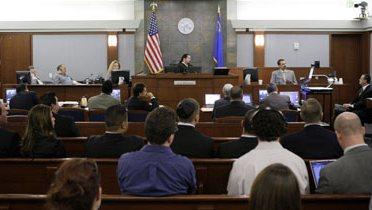
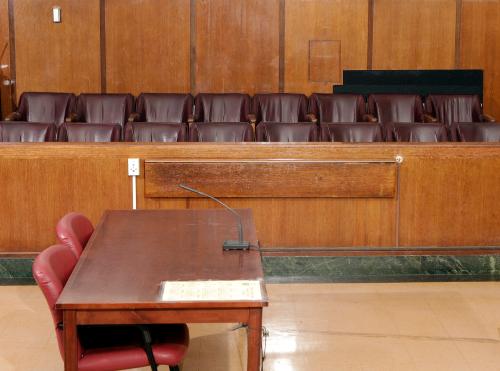
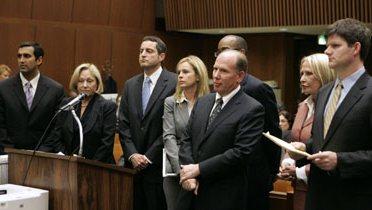
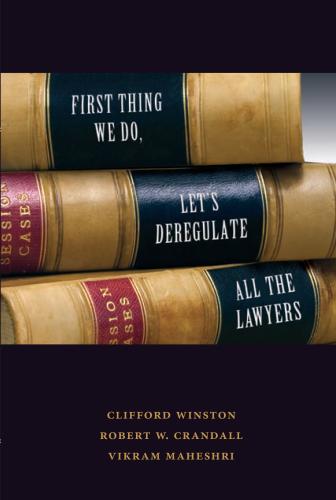
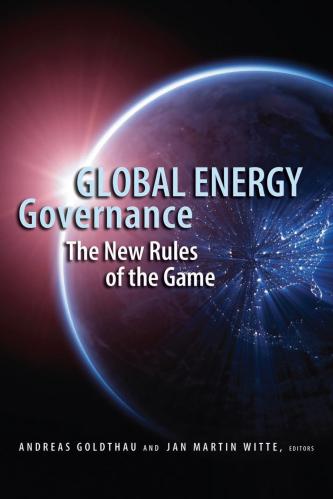




Commentary
Op-edThe U.S. May Need More Lawyers!
July 29, 2011